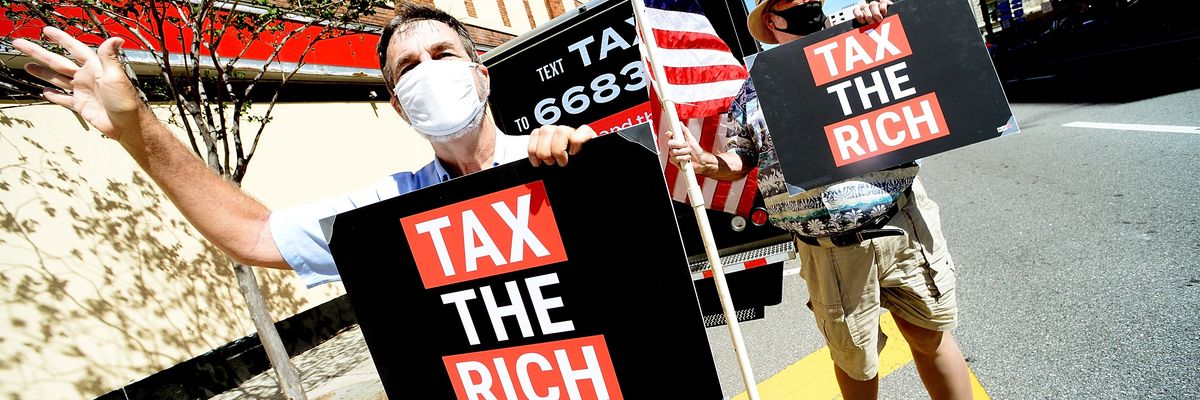Proponents of progressive taxation on Friday pointed to data showing Washington state stands poised to reap $849 million in revenue during the first year of its capital gains tax as proof that taxing the rich works—and could serve as a template for federal legislation.
The Seattle Times reports that when Washington state lawmakers passed this fiscal year's budget, they anticipated collecting $248 million in revenue from the 7% tax on the sale or exchange of stocks, bonds, and certain other assets above $250,000.
However, the legislators were pleasantly surprised when figures showed the state has collected over $600 million more than that.
While the amount collected could change after around 2,500 taxpayers who applied for extensions file their returns, progressives welcomed the windfall that will fund public schools, early childhood education, and building and repairing schools across the state.
"Hey, hey! What we knew would happen: Make the wealthiest pay their fair share and it finances investments in education, transportation, and more," tweeted Congressional Progressive Caucus Chair Pramila Jayapal (D-Wash.).
Jayapal touted federal legislation she introduced with Sen. Elizabeth Warren (D-Mass.) in 2021—the Ultra-Millionaire Tax Act—that would levy a 2% annual tax on the net worth of households and trusts above $50 million, plus a 1% annual surtax on billionaires.
An analysis by University of California, Berkeley economists Emmanuel Saez and Gabriel Zucman found that the legislation would bring in at least $3 trillion in revenue over 10 years without raising taxes on 99.95% of American households worth less than $50 million.
Last month, Warren, Sen. Bernie Sanders (I-Vt.), and Rep. Jimmy Gomez (D-Calif.) introduced the For the 99.5% Act, which would impose a 45% tax on estates worth between $3.5 million and $10 million, a 50% tax on estates worth between $10 million and $50 million, a 55% tax on estates worth between $50 million and $1 billion, and a 65% tax on estates valued at over $1 billion.
Meanwhile, congressional Republicans are trying to repeal the estate tax entirely—and pass other tax policies to serve the rich.
Back at the state level, California, New York, Illinois, Maryland, Connecticut, and Hawaii have also introduced wealth tax bills this year, while Washington's law was upheld by that state's Supreme Court in March.
"If the federal government won't act," California Assemblymember Alex Lee (D-24) said while introducing a wealth tax bill in January, "we the states will."




